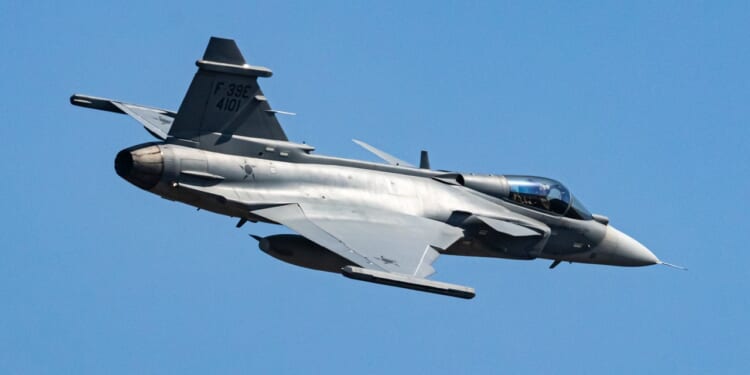Brazil does not want to be involved in the looming US-Venezuela war, and has placed military assets along its border to discourage accidental crossings.
Tensions continue to rise in South America, as the United States maintains its presence off the coast of Venezuela. Because of this, Brazil’s Força Aérea Brasileira (FAB), the Brazilian air force, is shifting its military-air posture closer to Venezuela. The land border between Venezuela and Brazil is long and exists within extremely hard-to-monitor jungle terrain.
As the regime of Nicolas Maduro is a perennial nuisance to its neighbors—including Brazil—there have long been tensions between the two South American powers. There has also been a documented case where the Brazilian FAB shot down an aircraft alleged to be traffickers flying from Venezuela to Brazil. In other words, Brazil’s air force did exactly what the United States Navy has been doing off the coast of Venezuela: destroying the vessels of suspected drug traffickers.
How Brazil Could Get Caught Up in a US-Venezuela War
The repositioning of transport and patrol aircraft by Brazil’s FAB toward its northern border with unruly Venezuela suggests that one objective is better surveillance of the border airspace as things between the United States flotilla and Venezuela’s regime continue deteriorating.
Indeed, Brazil’s northern region is impacted by tensions among its neighbors—notably the on-again, off-again territorial dispute between Guyana’s Essequibo region and Venezuela. The Maduro government has argued that the oil-rich area of Essequibo rightfully belongs to Venezuela, although it has belonged to Guyana since 1899.
Moving assets, such as a patrol aircraft and fighters, farther north gives Brazil better rapid response to any crisis that might erupt along their northern border. There is a chance that the Venezuelan military might attempt to use that jungle border area to move forces, critical supplies, and equipment through either to fight any American invasion force or to flee from them.
There’s a further possibility that there might be airspace violations or spill-over from the instability caused by US military actions directed against Venezuela.
Brazil Is Stationing Armored Units Along Venezuela’s Border, Too
In the Amazon border areas, illegal mining, logging, and other trans-border environmental crimes are a major concern for Brazil’s government. By having a greater military presence along that border, especially at such a dangerous time, the Brazilians can better defend their sovereignty and stop such unwanted actions by rogue elements from neighboring Venezuela.
Roraima, a Brazilian state that borders Venezuela, is the site of a massive expansion of Brazilian mechanized infantry units. The Brazilian Army is deploying nearly triple the usual number of armored vehicles and artillery to reinforce forward bases along the border with Venezuela.
Flight data indicates that Brazilian transport and patrol aircraft have moved into northern Brazil over the last week. Specifically, a KC-390, C-99A, and others were tracked moving northward.
Though Brazil has emphasized it is not seeking any confrontation with their northern neighbor—and indeed, there is much ideological overlap between the current government in Brazil and that of Venezuela—the repositioning of their forces signals to Caracas that Brazil will not tolerate being roped into their fight.
About the Author: Brandon J. Weichert
Brandon J. Weichert is a senior national security editor at The National Interest. Recently, Weichert became the host of The National Security Hour on America Outloud News and iHeartRadio, where he discusses national security policy every Wednesday at 8pm Eastern. He is also a contributor at Popular Mechanics and has consulted regularly with various government institutions and private organizations on geopolitical issues. Weichert’s writings have appeared in multiple publications, including The Washington Times, National Review, The American Spectator, MSN, and the Asia Times. His books include Winning Space: How America Remains a Superpower, Biohacked: China’s Race to Control Life, and The Shadow War: Iran’s Quest for Supremacy. His newest book, A Disaster of Our Own Making: How the West Lost Ukraine is available for purchase wherever books are sold. He can be followed via Twitter @WeTheBrandon.
Image: Shutterstock / Ariadne Barroso.


















